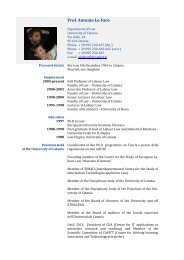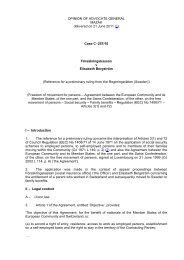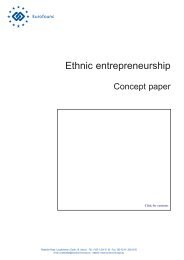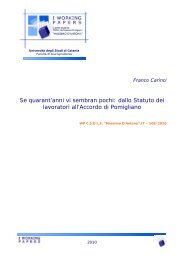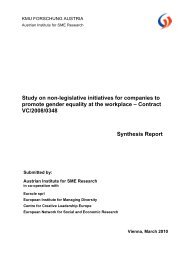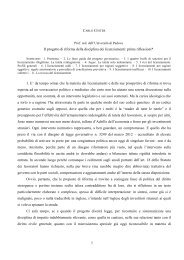Full text - European Trade Union Institute (ETUI)
Full text - European Trade Union Institute (ETUI)
Full text - European Trade Union Institute (ETUI)
Create successful ePaper yourself
Turn your PDF publications into a flip-book with our unique Google optimized e-Paper software.
Isabelle Schömann and Carolie Guedes<br />
Explanations of the failure of the negotiations are of two different kinds. First,<br />
trade unions and employers’ organisations disagree on some key elements of<br />
the substance of the agreement itself. The other explanations are more specific<br />
to the con<strong>text</strong> of the negotiations.<br />
Regarding the disagreements on the substance of the agreement, first there<br />
was fundamental opposition between the trade union side and the employers’<br />
side with regard to the purpose of the agreement itself. ETUC wanted to<br />
marginalise temporary agency work or at least to provide more protection for<br />
agency workers; employers, on the other hand, wanted to promote temporary<br />
agency work as a tool of employment policies, given its positive effect on job<br />
creation (Jones 2002).<br />
In more detail, there were four problematic points. First, they were opposed<br />
on whether to include pay in the basic employment conditions subject to the<br />
principle of equal treatment. Second, employers wished to remove all restrictions<br />
on the use of temporary agency work, while ETUC was in favour<br />
of regulation more or less similar to what was provided by the Directive on<br />
fixed-term work (Jones 2002). Third, they had divergent views with regard<br />
to the scope of the agreement, the main question being whether to include<br />
temporary agency workers with open-ended employment contracts with the<br />
agency within the scope of the agreement. However, the most burning question<br />
concerned the implementation of the equal treatment principle from day<br />
one as well as the definition of a possible comparable worker. ETUC wanted<br />
it to be a permanent worker doing the same job in the user undertaking and<br />
to enjoy equal treatment from the first day of assignment, but no agreement<br />
could be found with the employers’ organisations (Vaes and Vandenbrande<br />
2009). As already mentioned, the con<strong>text</strong> also exercised a great influence on<br />
the negotiation process.<br />
First, it is worth mentioning that with regard to temporary agency work there<br />
were many differences between Member States’ legal frameworks, which was<br />
not the case for fixed-term and part-time work (Ahlberg 2008). Moreover, the<br />
<strong>European</strong> social partners no longer had to prove their legitimacy as actors in<br />
the <strong>European</strong> social dialogue because, as mentioned above, it was already the<br />
fourth negotiation (Ahlberg 2008).<br />
Another key element was that disagreements and tensions emerged among<br />
employers’ representatives (particularly between UNICE and CIETT), but<br />
also among trade union representatives (Bercusson 2008). In addition, ETUC<br />
had to prove that they were not willing to accept an agreement at any price, as<br />
they had been strongly criticised with regard to the agreement on fixed-term<br />
contract (Ahlberg 2008).<br />
Another major factor may also have been the intervention of the <strong>European</strong><br />
Commission’s legal service. One of the main incentives in <strong>European</strong> social<br />
dialogue is that a <strong>text</strong> drafted by the <strong>European</strong> Commission is likely to be less<br />
favourable than a negotiated agreement.<br />
14 Report 125




